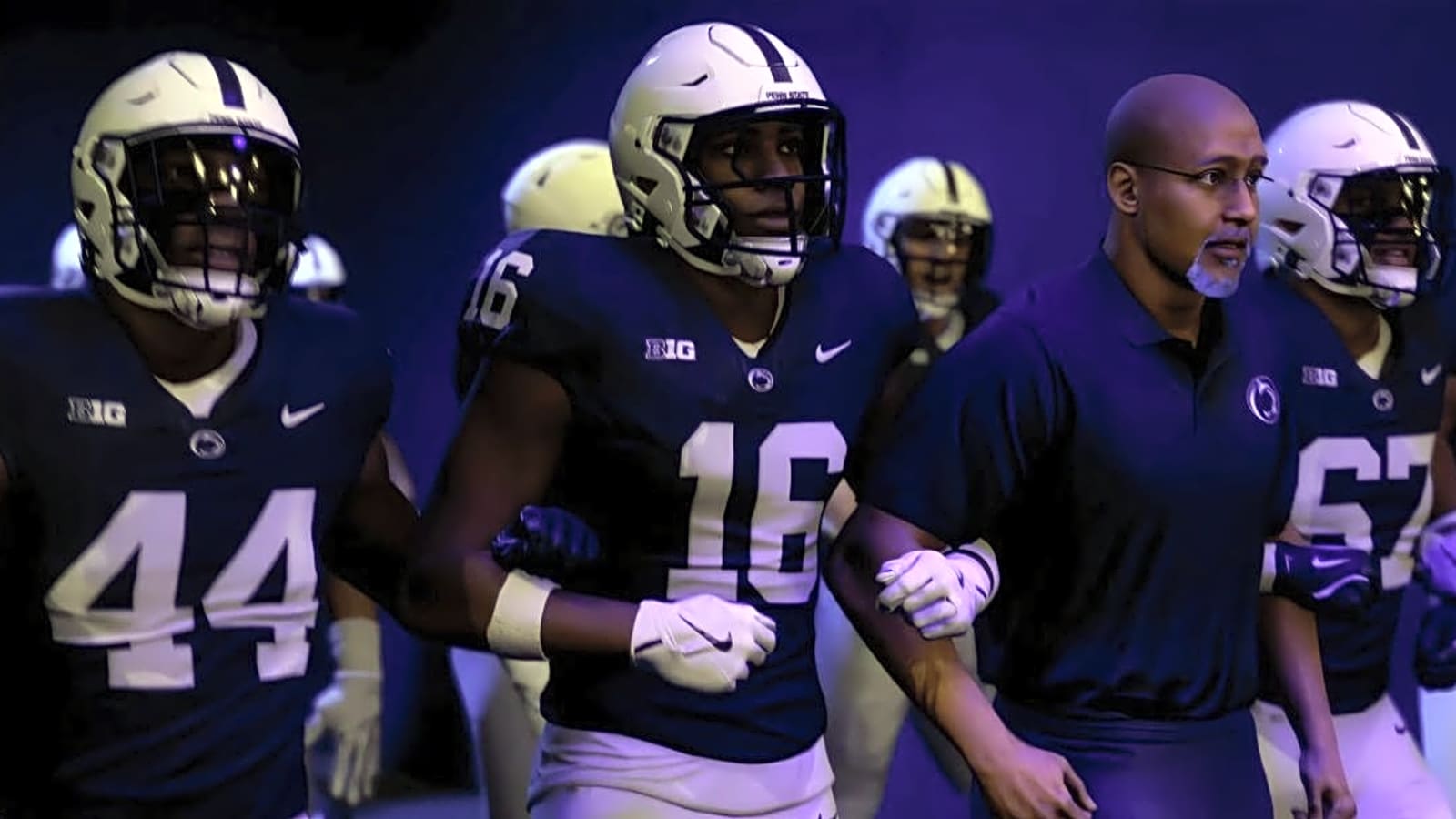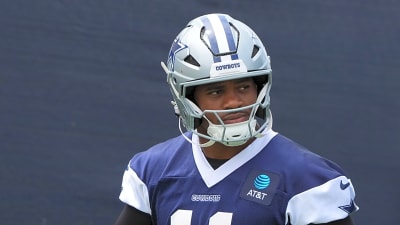
The return of EA Sports College Football has been nothing short of spectacular. After more than a decade in dormancy due to name, image, and likeness legal battles, the beloved franchise roared back to life and immediately proved that college football fans had been waiting patiently for this moment. Now, with two successful releases under its belt, EA Sports is setting ambitious goals for the future—and its vision for College Football 27 could revolutionize sports gaming entirely.
The numbers don’t lie: College Football 25 became the best-selling sports game in U.S. history, while College Football 26 has continued that momentum with overwhelmingly positive fan response. But EA Sports executives aren’t content to simply ride this wave of success. They’re planning something much bigger, with hints of paradigm-shifting innovations that could transform how we experience virtual college football.
The Triumphant Return of EA Sports College Football
When EA Sports College Football 25 launched in July 2024, it exceeded every expectation. The game didn’t just meet the pent-up demand from fans—it shattered sales records and became 2024’s top-selling video game. This wasn’t simply nostalgia driving purchases; it was a carefully crafted product that captured the authentic essence of college football.
“It’s an influential piece of college sports to have this game back,” explained Daryl Holt, EA Sports senior vice president. The franchise’s return represented more than just entertainment—it became a cultural touchstone that connected millions of fans to their favorite sport in an interactive way.
The success of College Football 25 set an impossibly high bar for its successor. As Evan Dexter, vice president of brand strategy and marketing for American football at EA Sports, noted, the development team “had to make sure that the sophomore season wasn’t going to be anything less than a breakout rookie season.”
That pressure could have been overwhelming, but EA Sports leveraged it as motivation. The company understood that college football fans represent one of the most passionate and demanding gaming communities in existence. Meeting their expectations required more than technical excellence—it demanded authentic representation of college football’s unique culture.
What Made CFB 26 a Hit?
College Football 26’s success stems from EA Sports’ commitment to authenticity and community feedback. The development team embraced a philosophy of creating games “for college football fans, by college football fans,” ensuring that every detail resonated with the target audience.
The game’s attention to tradition and pageantry set it apart from generic sports titles. From fight songs and stadium entrances to team-specific chants and play styles, CFB 26 captured the unique identity of each FBS school. This dedication to detail prompted an avalanche of requests from universities wanting their specific traditions included in future editions.
Real-life coaches proved to be a game-changing addition. With more than 11,000 players already in the game, the inclusion of actual head coaches added another layer of authenticity. Sean O’Brien, EA Sports vice president of business development, noted that coaches quickly recognized the recruiting potential of being featured in the game. Young gamers could experience different coaching styles and schemes, potentially influencing their real-world college choices.
Currently, only 12 head coaches aren’t included in the game, with notable holdouts including Bill Belichick, Deion Sanders, and Mario Cristobal. However, O’Brien expressed confidence that “FOMO (fear of missing out) is real,” suggesting that future editions might see even broader coaching participation.
The community-driven approach paid dividends. Production director Christian McLeod emphasized heavy reliance on player feedback to shape the game, resulting in what Dexter described as a “really strong response” from the gaming community.
Handling the Passionate Fanbase
EA Sports executives have learned to embrace criticism rather than fear it. The college football gaming community is notoriously demanding, with fans scrutinizing everything from uniform details to gameplay mechanics. Recent updates have addressed some concerns, but vocal segments of the fanbase continue pushing for improvements.
Rather than viewing this as a problem, EA Sports sees it as an opportunity. Dexter calls these “incredible problems” to have—a dedicated player base that cares deeply about the product and wants it to be perfect. This feedback loop directly influences development decisions and helps prioritize future enhancements.
The criticism serves a valuable purpose in the development cycle. As the team finalized CFB 26, they were already incorporating fan feedback into early planning for College Football 27. This continuous improvement mindset ensures that each annual release builds meaningfully on its predecessor.
Looking Ahead to College Football 27
While EA Sports executives remained tight-lipped about specific College Football 27 features, they provided tantalizing glimpses of the franchise’s long-term vision. According to Holt, the sports gaming industry experiences a paradigm shift approximately every decade, introducing substantial upgrades in functionality and presentation.
That shift is approaching rapidly, and EA Sports believes it will result in transformative changes for the College Football series. The innovations under consideration could fundamentally alter how players interact with virtual college football.
Enhanced player likenesses represent one area of focus. Current technology limitations prevent truly photo-realistic character models, but advancing capabilities could soon deliver unprecedented visual fidelity. Players might see their favorite athletes rendered with stunning accuracy, creating deeper emotional connections to the gaming experience.
Stadium customization offers another exciting possibility. Holt mentioned improvements in stadium building technology, potentially leading to full custom stadium creation tools. This feature previously existed in the NCAA Football series, and its return could unleash incredible creativity within the gaming community.
“There is no rest for the weary,” Holt emphasized. “We are having a conversation daily, and we’re thinking about the game and how we’re going to adapt and evolve it just about every moment we can.”
The Innovation Pipeline
EA Sports’ commitment to continuous innovation extends beyond single-year development cycles. The company now operates with a multi-year strategic approach, simultaneously planning multiple future releases while refining current offerings.
The upcoming changes promise improvements across multiple dimensions. Visual enhancements will deliver more authentic and realistic representations of players, stadiums, and game environments. Gameplay mechanics will become more sophisticated, offering players greater control and immersion.
Off-field features will also see significant expansion. The current game focuses primarily on on-field action, but future editions might incorporate broader college football experiences, from recruiting and program management to campus life integration.
Holt’s vision encompasses both technical improvements and experiential enhancements: “They will get more authentic and real, not just in visuals, but in how things operate and what you can do in the games. The gameplay will get more realistic, more control for our players and immersive.”
Maintaining the Core Mission
Despite ambitious plans for technological advancement, EA Sports remains committed to the franchise’s fundamental identity. The games will continue being made “for college football fans, by college football fans,” as Holt emphasized.
This commitment means that innovation won’t come at the expense of authenticity. New features must enhance rather than compromise the college football experience. The passionate fanbase serves as both inspiration and accountability, ensuring that technological progress serves genuine gameplay improvements.
The franchise’s future success depends on balancing innovation with tradition—much like college football itself. EA Sports appears to understand this delicate balance, using fan feedback and technological capabilities to create increasingly sophisticated tributes to America’s most beloved amateur sport.
As development for College Football 27 continues, one thing remains certain: EA Sports College Football has permanently returned to the gaming landscape, and its best years may still lie ahead.
More must-reads:
- After an amazing career, it's time for Lee Corso's final goodbye
- Mets ride hot start, Jonah Tong's impressive debut in historic performance
- The 'NFL QB season rushing leaders' quiz
Breaking News
Trending News
Customize Your Newsletter
 +
+
Get the latest news and rumors, customized to your favorite sports and teams. Emailed daily. Always free!








